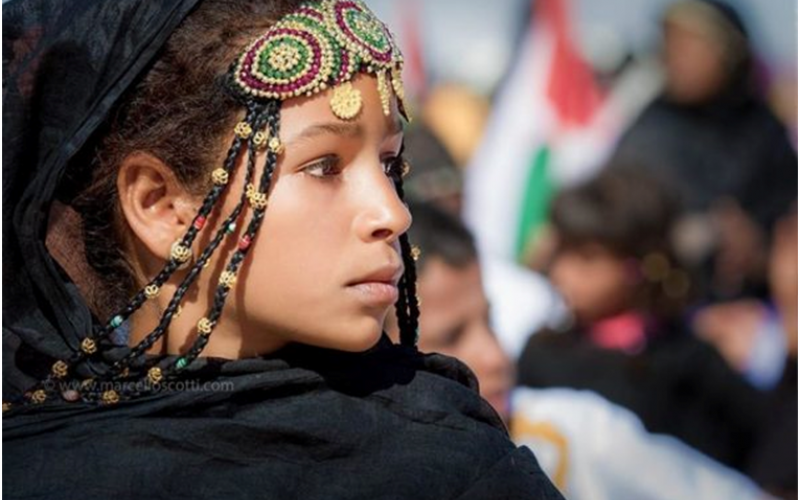Polisario Front
What the world needs to know about Western Sahara

Western Sahara: ‘No one will give us our freedom’

[Click HERE for more on the struggle of the people of Western Sahara.]
By Ryan Mallett-Outtrim and Laura Gilbie
March 11, 2012 -- Green Left Weekly/Links International Journal of Socialist Renewal -- After two decades of political deadlock, Africa’s oldest refugee population is losing faith in UN mandated peace negotiations.
“No one will give us our freedom — we must take it!,” Sahrawi journalist Embarka Elmehdi Said told Green Left Weekly. Said sees little hope for a peaceful resolution to the crisis that has gripped Western Sahara since its independence from Spain in the 1970s.
A child when her family fled the Moroccan invasion of Western Sahara in 1975, Said has spent most of her life in the Polisario run refugee camps on the Western Sahar-Algeria border.
Her two sons, aged 12 and three, have spent all their lives in the camps.
Western Sahara: `We want to go back to our country. Nothing will stop us wanting our rights'
Tagiyou Aslama. Photo by Alan Bain.
Tony Iltis interviews Tagiyou Aslama
Polisario Front briefing paper on the question of Western Sahara
By the Polisario Front
October 2009
1. Western Sahara (the Saharawi Arab Democratic Republic) is located in northwest Africa and covers an area of 266,000 square kilometres. It is bordered by Morocco to the north, Algeria to the northeast and Mauritania to the East and southeast and has a 1,200-kilometre-long Atlantic Ocean coastline. The Saharawi Republic was proclaimed on 27 February 1976; its capital is El Aaiún.
2. In the pre-colonial times, the Saharawis lived as one independent community and developed their own cultural forms of expression and socio-political organisations; it was these idiosyncratic elements that constituted the distinctiveness of the Saharawi society over the centuries. The Saharawi are known for being a tolerant, open and peaceful society that has never been involved in any form of political or religious extremism.
Australia: Damage on many fronts in false charge of slavery in Western Sahara

A documentary on Western Sahara refugees marks a low point, Kamal Fa
Western Saharan minister: `Only one solution -- our return to our sovereign homeland'

27 February refugee camp, south-west Algeria
November 29, 2008 -- In October, a three-member delegation of Australian trade unionists visited the Saharawi (Western Saharan) refugee camps in the Hamada desert, south-west Algeria. Western Sahara has been illegally occupied by Morocco since 1975.Green Left Weekly/Links’ Margarita Windisch spoke with Sid’Ahmed Tayeb, the minister of public health for the exiled Saharawi Arab Democratic Republic, when she visited the 27 February refugee camp.
The Saharawi refugee camps have now existed for close to 33 years in extremely inhumane surroundings. What has led to the Saharawis becoming refugees and what are the challenges facing the Saharawi people?
First, I would like to thank you very much for your visit. It shows us that we are not alone. This is important support that international community can give us.
A brief history of the Western Saharan people’s struggle for freedom

Trade unionists call for solidarity with Western Sahara

UGTSARIO congress delegates
By Margarita Windisch
